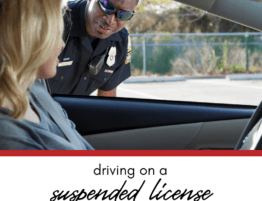
Picture this: the police knock on your door, or pull you over, and start asking questions. It’s a situation no one wants to be in, but understanding your rights in these circumstances can make a world of difference. One critical question you might have is whether you can refuse to talk to the police. In this guide, we’ll answer just that.
Can You Refuse to Talk to Police?
In situations where you might feel cornered or intimidated, it’s crucial to remember your rights. This guide will provide insights on the following:
- Your constitutional right to remain silent
- Interacting with police during a traffic stop
- Dealing with police at your doorstep
- Understanding the consequences of refusing to talk
- FAQ about refusing to talk to police
Here’s a closer look at each.
Your Constitutional Right to Remain Silent
You’ve heard it in movies – “You have the right to remain silent.” This right is backed by the Fifth Amendment, designed to protect you from self-incrimination. You can invoke this right anytime you’re dealing with law enforcement.
Related: How to choose the right criminal defense lawyer in Chicago
Interacting with Police During a Traffic Stop
During a traffic stop, you can assert your right to remain silent. You must provide your driver’s license and registration, but beyond that, you don’t need to answer any other questions without a lawyer present.
Dealing with Police at Your Doorstep
If police come knocking, you’re not obligated to invite them into your home without a warrant. Furthermore, you can communicate through the door and assert your right to remain silent.
Related: What happens if you’re charged with battery in Illinois?
Understanding the Consequences of Refusing to Talk
Remember that refusing to talk to police is not an admission of guilt and it cannot be used against you in court. However, it may lead to more questioning or investigation.
FAQ About Refusing to Talk to Police
Check out these commonly asked questions about refusing to talk to police. If you don’t see the answers here, please call our office, and we’ll provide the information you need.
Can police arrest me for refusing to talk?
Refusing to answer questions is not a crime, but depending on the situation, police might have other reasons to arrest you.
Related: How a DUI conviction in Illinois can ruin your life
Does my right to remain silent mean I don’t have to identify myself?
While you have the right to remain silent, you’re required to identify yourself if asked by law enforcement.
If I choose to remain silent, should I let the police know?
Yes, it’s essential to clearly state that you’re invoking your right to remain silent.
Can I refuse to talk even if I’m not arrested?
Yes, you can always assert your right to remain silent, whether you’re under arrest or not.
Can I leave if I refuse to talk to the police?
Unless you’re being detained or arrested, you may ask if you’re free to go.
Related: What are the consequences of shoplifting in Illinois?
Remember, if you’re faced with a situation where you’re interacting with law enforcement, you have the right to refuse to talk to the police. Always consult with a criminal defense lawyer in Illinois to better understand your rights and options in such scenarios.
Do You Need to Talk to an Attorney?
If you’ve been accused of a crime, we may be able to help you – and don’t worry: It’s completely confidential. Call us at 847-920-4540 or fill out the form below to schedule your free, private consultation with an experienced and skilled Chicago criminal defense attorney now.
Contact Us
"*" indicates required fields









